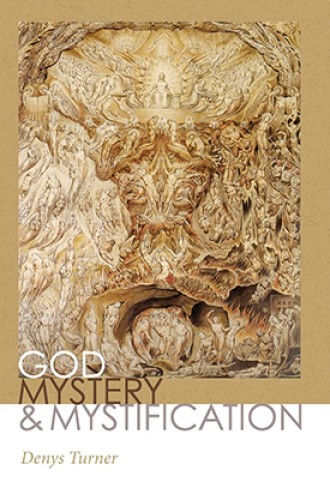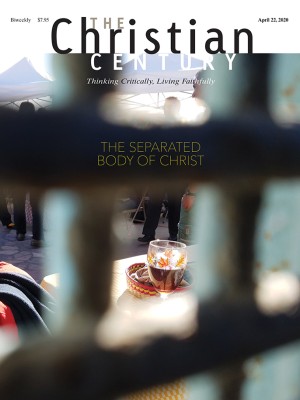Reason and revelation meet—even in Aquinas
Denys Turner’s essays bridge the gaps that often frustrate us when we read medieval theology.
One spring afternoon a decade ago, while struggling to write about Thomas Aquinas’s trinitarian theology, I got frustrated and took a break. I could not see through the thicket of individual existences of a rational nature, who proceeds from whom, and the basic meanings of paternity and filiation. I went for a walk, and as I walked a tune came unbidden to my mind. I found myself singing the Latin words of the beloved 13th-century Eucharistic hymn “Adoro te devote.”
Recalling the words almost brought me to tears, and I sighed and wondered why Aquinas couldn’t be more like . . . himself. Thomas, the author of the Summa Theologiae, is also the poet of “Adoro te devote.” And so the two must hang together somehow.
Read our latest issue or browse back issues.
If you suspect you may have missed something important in your previous encounters with medieval theology, Denys Turner’s God, Mystery, and Mystification is a very good book for reconsidering it. The book consists of talks that Turner gave over the course of his career to a variety of audiences, and they address a range of themes, always making recourse to medieval theology. Having been written separately, each of the chapters stands on its own, with some of them more integrated into an overall arc than others.
Aquinas is the most prominent figure in the collection, but the essays do more than connect two moods of one important figure. They explore different modes of speaking about God, both in the Middle Ages and now. Since the mid-20th century, scholars have spoken of scholastic and monastic modes in medieval theology; a third mode, vernacular theology, was added later. Turner considers all three sorts of figures on questions such as the nature of evil, the interpretation of scripture, the potentialities and limits of reason and dialogue, heresy, mystical union, and politics. These modes are not foreign to one another, and they’re less foreign to contemporary readers than we might imagine.
Most profitable for me were the two chapters on Aquinas, in which Turner pushes against theologians who have argued that reason apart from revelation tells us nothing about God—or at least the true God. He reads Aquinas as searching for those places where human communication transcends itself, even as it simultaneously falls short of its most important subjects. Turner shows how this happens not only with reason as we narrowly construe it, but also with music, prayer, and sacraments.
While Turner explores what basis there is for meaningful dialogue within and across religious traditions, he also manages to teach something very important about prayer. The way he channels Aquinas to talk about the carnality of prayer, and how we need to pray for what we desire even if it is not what God desires, is something I anticipate revisiting on my own and with my community.
For Aquinas, Turner shows, the simultaneous transcendence and failure of communication are most visible in the Eucharist, which is also the most intense moment of God’s presence and absence. The Eucharist teaches us the truth about all communication. This idea returns in the book’s final chapter, where the concern is politics. Asking about the depths of life together in the light of the mysteries of Christ and showing how the Eucharist reveals the true meaning of the political, Turner’s discussion avoids the triteness of much discussion of religion and politics, and it exposes the mistaken assumptions of would-be theocrats and secular fundamentalists alike.
This might not be the book for those who are curious about Turner’s most important scholarly interventions, although he does offer some important clarifications. Neither is it the best introduction for those who are entirely unacquainted with medieval figures and themes. (Turner’s standalone works on Thomas and Julian of Norwich will be useful for those readers.) But for those who have an interest in medieval theology and limited time for reading, it’s an edifying collection: most of the major themes of Turner’s career show up, and they do so in more digestible portions than in his monographs.
My only gripe is that certain moments in the text seem much more suited for the time when they were delivered as speeches than for the present environment. For example, the Ivy League humor that frames the discussion of evil and suffering in the first chapter does not work as well as it probably did when the talk was delivered. Still, it would be a huge mistake to deprive oneself of that chapter’s insightful discussion of having to live in a world of sin and suffering that we cannot understand.
Turner presents important issues and shows how they could be discussed better, or at least differently, using the resources of another era. He writes with charm and occasional humor but no trace of nostalgia. (The chapter on Marguerite Porete is particularly frank in discussing the limitations and cruelties of that era.) Not only do these essays make the complexities of scholastic thought quite palatable, they may inform your pastoral life, prayer, and political praxis.







